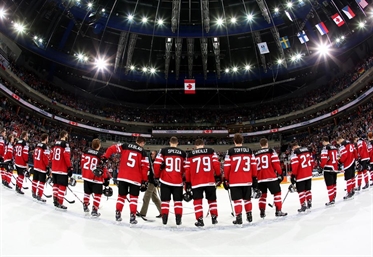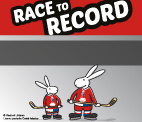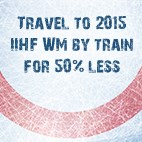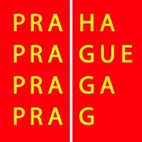Maple Leaf magic
Maple Leaf magic
Canada’s got good historical vibes in Prague

 PRAGUE, CZECH REPUBLIC - MAY 3: Canadian players look on during the national anthem after a 10-0 preliminary round win over Germany at the 2015 IIHF Ice Hockey World Championship. (Photo by Andre Ringuette/HHOF-IIHF Images)
PRAGUE, CZECH REPUBLIC - MAY 3: Canadian players look on during the national anthem after a 10-0 preliminary round win over Germany at the 2015 IIHF Ice Hockey World Championship. (Photo by Andre Ringuette/HHOF-IIHF Images)
For most countries, playing at home is the ideal situation. Canada’s only done that once in history at the IIHF Ice Hockey World Championship (Quebec City and Halifax 2008). However, it’s managed to get into the groove better in some European host cities than in others.
Over the years, as we’ll see, Prague has been quite kind to Canada.
In the big picture, since the NHL began sending players to the World Championship in 1977, Canada has captured gold five times. Finland is Canada’s favourite “home away from home.” The red Maple Leaf squad took the title in Helsinki in both 1997 and 2003 under head coach Andy Murray.
Canada has won one gold apiece in the following countries: Italy (1994), the Czech Republic (2004), and Russia (2007).
Of course, the motherland of hockey takes a gold-or-bust approach toward international competition. But when you haven’t won anything in six years, a medal of any shade would be welcome. And if you look at it like that, the Czech Republic becomes an even more attractive proposition for Canada, historically speaking. (Only once since 1977 has Canada failed to medal here, back in 1992.)
It was in Prague that the Canadians earned their first NHL-era medal, a bronze in 1978. That Harry Howell-coached squad featured Los Angeles Kings centre Marcel Dionne, who would go on to be one of the top 10 scorers in NHL history.
There was even more star power on the 1985 Canadian team that came to Czechoslovakia. It was packed with teens and 20-somethings poised to define their era.
The centres at coach Doug Carpenter’s disposal included Mario Lemieux, Steve Yzerman, and Ron Francis. Like Dionne, they’d all become top-10 all-time NHL scorers, but were arguably even more iconic. The “supporting cast” included Kirk Muller, Bernie Nicholls, and Dave Taylor.
And as if that isn’t stunning enough in retrospective, the defence featured future Hockey Hall of Famers Scott Stevens and Larry Murphy.
It seems fitting that this squad was the one that ended the Soviet Union’s record-setting World Championship win streak at 47 games with a 3-1 medal round win on May 1. Lemieux scored a pair to lead the way, and Canada wound up taking the silver medal behind Czechoslovakia.
What about 2004? It was here in Prague that coach Mike Babcock began to cement his legendary reputation in IIHF competition. He’d already led Canada to its fifth straight World Junior gold medal in 1997. What’s sometimes forgotten is that the Saskatchewan native, who’d gone to the 2003 Stanley Cup final with the Anaheim Mighty Ducks, wasn’t originally supposed to be Canada’s head coach. He took over at the last minute from Joel Quenneville, who was forced to withdraw due to illness.
Despite being the defending champions, the Canadians started and finished round-robin play that year on a shaky note. They tied lowly Austria 2-2 in their opener on April 25, and got thumped 6-2 by the host Czechs on May 4.
Facing a hard-working Finnish team in the quarter-finals, this star-studded squad included goaltender Roberto Luongo, defencemen Scott Niedermayer, Jay Bouwmeester, and Eric Brewer, and forwards Dany Heatley (the tournament MVP and scoring leader with 11 points), Daniel Briere, and Ryan Smyth. Interestingly, 18-year-old centre Patrice Bergeron made his IIHF debut here before ever playing at the World Juniors; that would come on the powerhouse 2005 team that swept to gold in Grand Forks, North Dakota.
The Canadians escaped with a 5-4 overtime win over Finland on Heatley’s dramatic long shot that beat Mika Noronen at 5:33. After topping Slovakia 2-1 in a hard-fought semi-final, they got a gold medal rematch with Sweden, whom they’d also faced in 2003.
Even though the Swedes had just as much star power with a young Henrik Lundqvist in net, Nicklas Lidstrom on defence, and Daniel Alfredsson and Peter Forsberg up front, Canada wouldn’t be denied. It rallied from deficits of 2-0 and 3-1 to triumph 5-3. Bouwmeester got the winner in the opening minute of the third period.
It’s still too early to tell whether Canada has what it takes to go all the way in 2015. But the early indications are very positive. And if it all works out, we may look back on this team as being as iconic as its 1985 and 2004 predecessors.
Captain Sidney Crosby’s legend would be secure if he retired tomorrow. Number one overall NHL draft picks like Nathan MacKinnon, Taylor Hall, and Aaron Ekblad still have plenty of time to forge Hall of Fame-worthy careers. Based on sheer talent, you can also drop the likes of Matt Duchene, Tyler Seguin, Claude Giroux, and Jason Spezza into the conversation. Theoretically, at least half this squad could wind up representing Canada at the 2018 Olympics in PyeongChang, South Korea.
With its fairy-tale architecture, Prague is sometimes nicknamed “The Golden City.” Canadian fans hope it lives up to that moniker for them again this year.
Back to Overview























































































